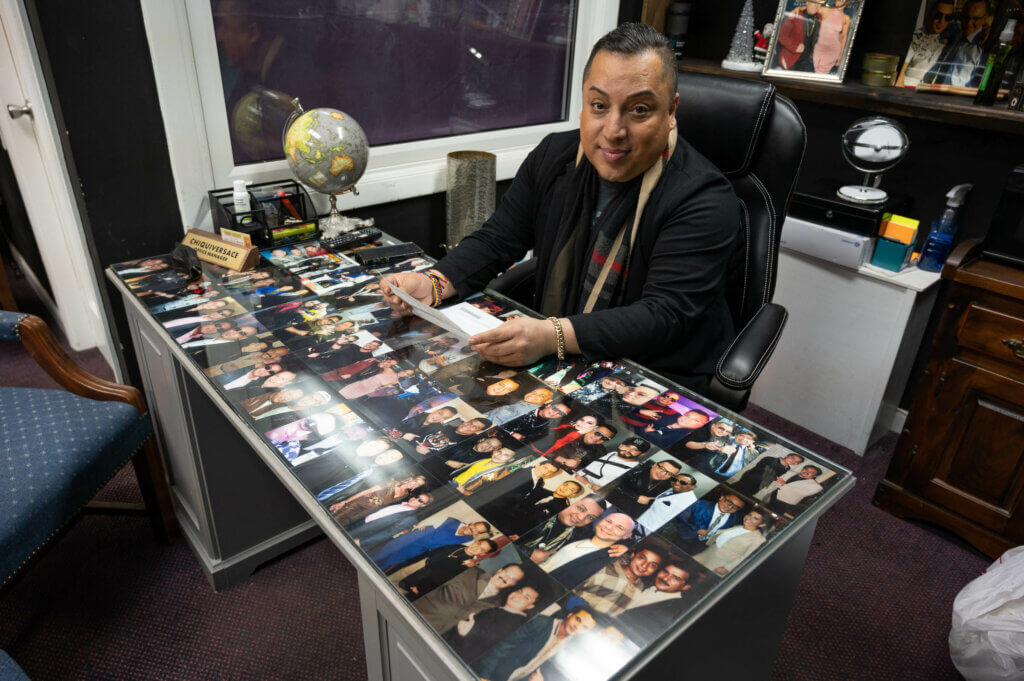Episode
Highlights

Chiqui Versace at his desk in Central Falls.
Chiqui Versace
It’s always a dream in our countries to come to the USA,” he said, “and to be able to make a good living and help out our family in Colombia.”
—Chiqui Versace
“I remember, they gave us a birth certificate,” Versace said. “A very old certificate, and a social security card.”
—Chiqui Versace
That day arrived on May 6, 2019 – the day after Cinco de Mayo. “Good thing that I didn’t drink that much that day,” Versace joked. Though he can laugh about it now, he described it as “the worst day of my life.”
“I cried and I cried and I cry,” Versace said. “When they arrest me, it was the first time that I was able to use my name, so it’s a relief – it’s a relief now that I can be Jose Velasco. I don’t have to be the other person anymore.”
“All I ask is just an opportunity to get a number to pay taxes,” Versace said. “Going back to Colombia is just throwing me into the gutter to die.” Despite advances in legal protections, many in the LGBTQIA+ community still experience persecution in Colombia. “I told them I would rather just kill myself,” he said.

